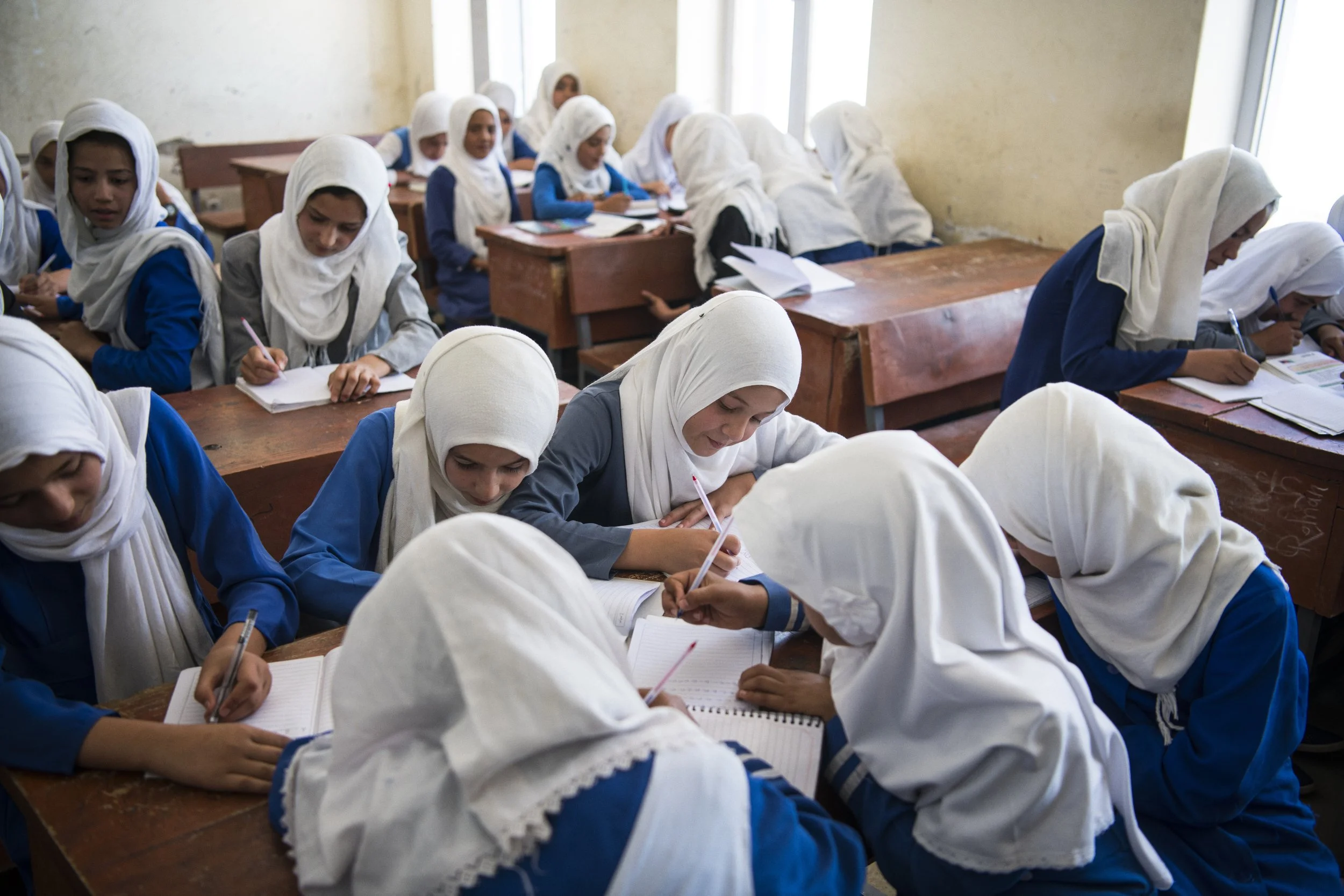“Afghan girls and women are making brave decisions every day.”
In Assembly’s International Women’s day issue, Afghan girls and women share their experiences, hopes and calls to action. (Courtesy of Andrew Quilty/Malala Fund)
Afghan children’s rights activist Freshta Karim guest edits Assembly’s International Women’s day issue.
In August 2021, the Taliban seized control of Afghanistan. Thousands of people fled the country and international aid — which was covering 75% of Afghanistan’s budget — stopped overnight, worsening an economy already strained by drought. The resulting humanitarian crisis has devastated the Afghan population and left many families unable to provide for their needs. In some villages, people are selling their kidneys to buy food.
When schools reopened weeks later, only boys were allowed to return. Girls were banned from secondary school, and women were told not to return to their jobs until further notice. Today, Afghanistan is the only country in the world that forbids girls’ education.
It is a dark time for my country. But this International Women’s Day, I write to remind myself — and you — that we must not give up on our dreams for peace in Afghanistan. In a piece for Malala’s guest-edited essay series for The Economist, I wrote about ways we can secure the rights of Afghanistan’s women and girls through political stability, economic recovery and transitional justice.
In today’s International Women’s Day issue of Assembly, I am joined by fellow Afghan women and girls who highlight their experiences, hopes and calls to action for our country. In today’s issue, Serene*, Yalda Popala* and Matia* — three girls in Afghanistan — explain how the girls’ education ban has affected their lives (this article is available in Dari and Pashto). Teacher and activist Angela Ghaysour writes about founding the Online Herat School, an educational resource for Afghan women and girls (this article is available in Dari and Pashto). We reshare Afghan university student Aazosh’s* essay about how the Taliban takeover has affected her education (this article is available in Dari). And Kawser Amine, a women’s rights activist and former Afghan soccer player, writes about her fight to learn and play her sport (this article is available in Dari and Pashto).
Each one of us has the chance to make a difference for Afghan girls and women by amplifying their calls for peace, education and equality. I hope these stories inspire you to imagine a more peaceful future for Afghanistan — and begin to work towards it.
*Editor's note: Afifa, Yalda Popala and Matia are pseudonyms.
 Read more
Read more










